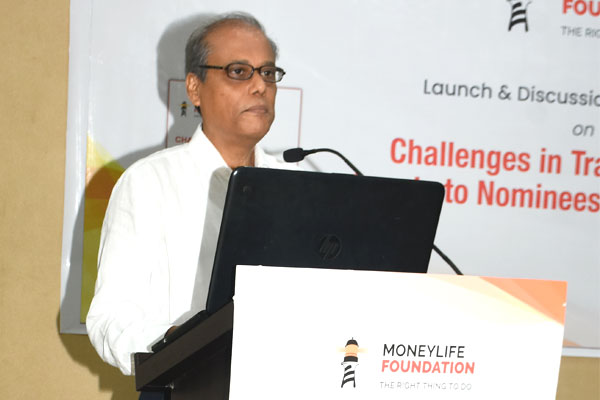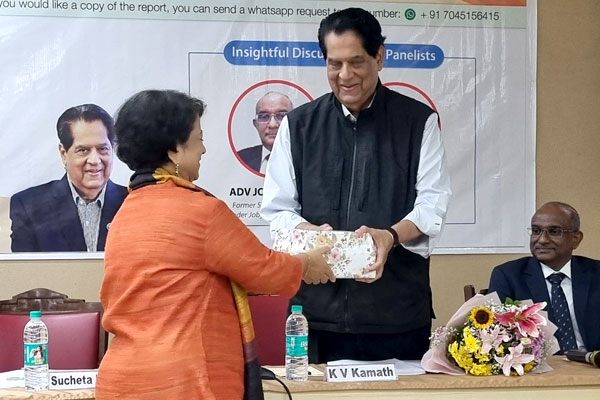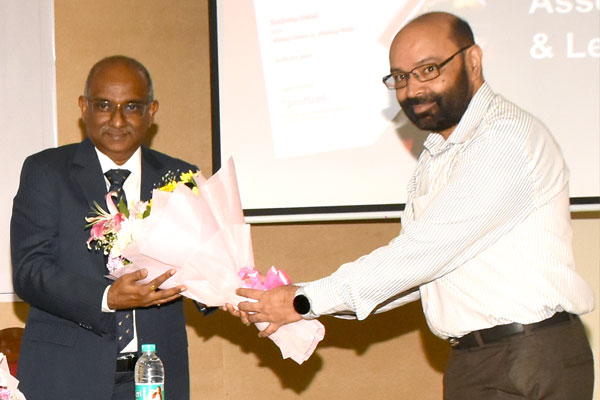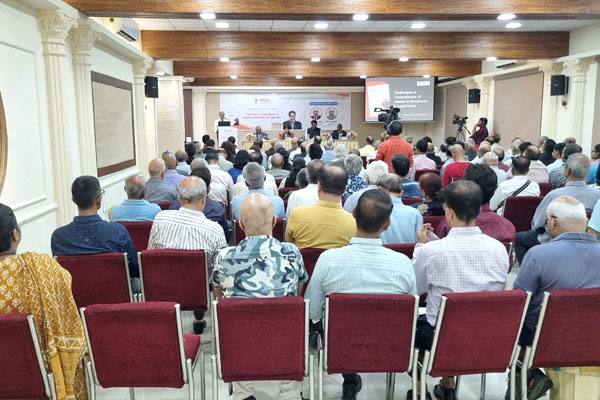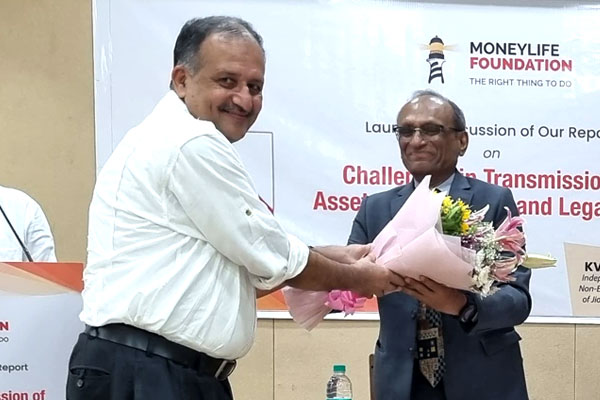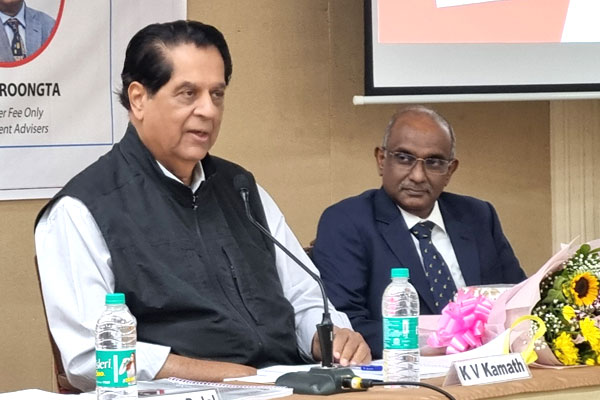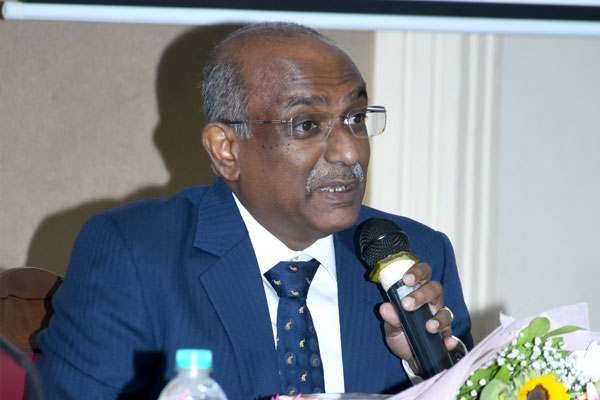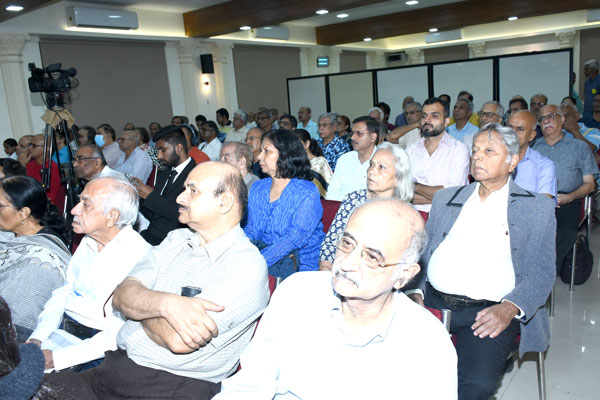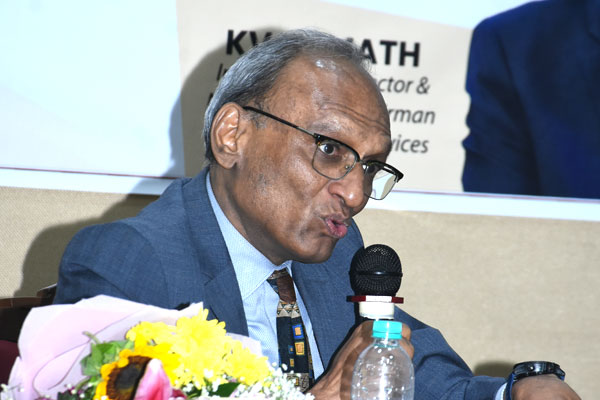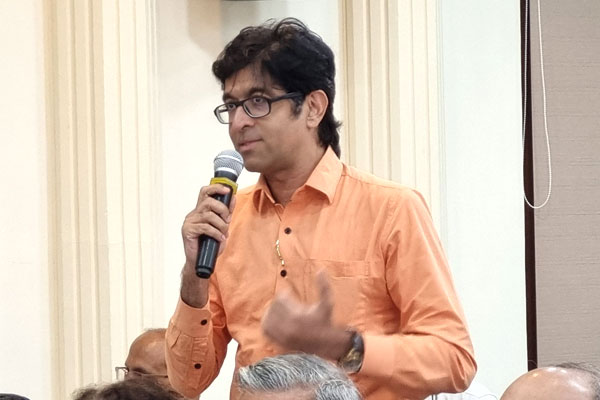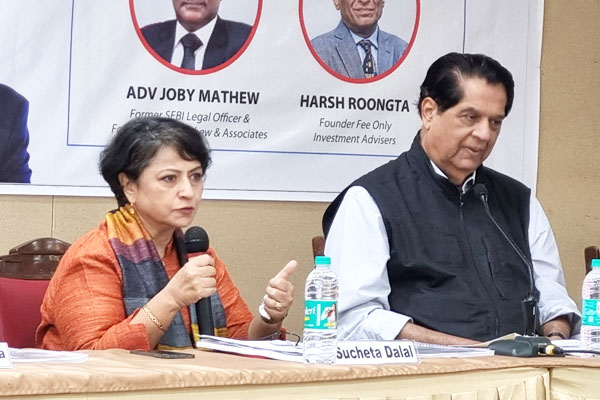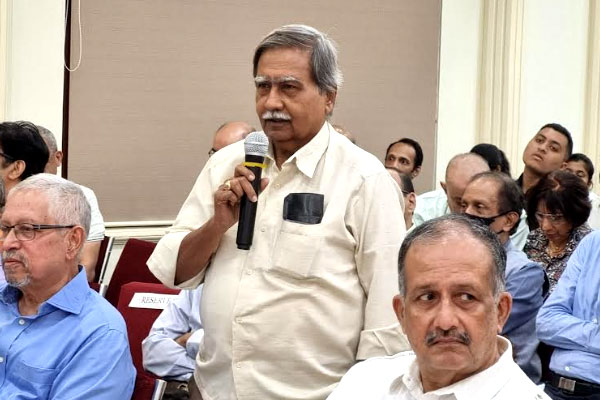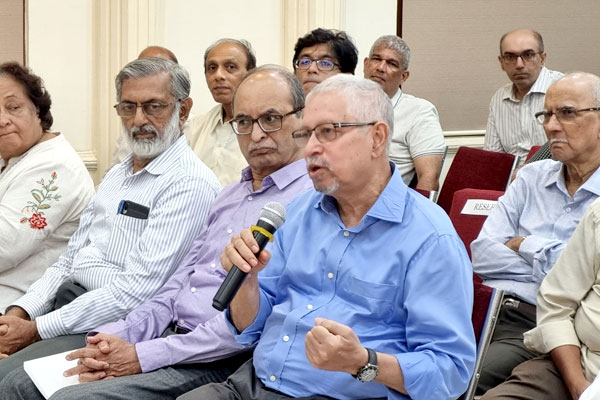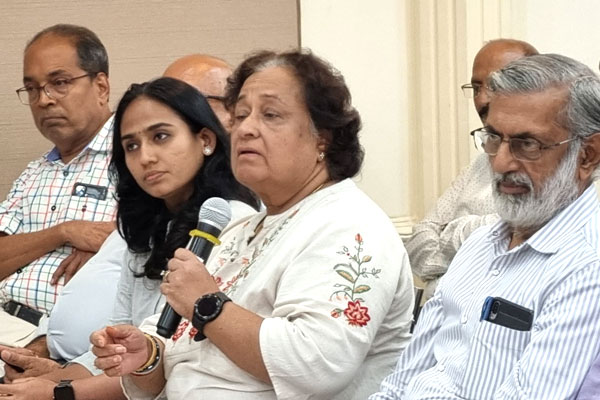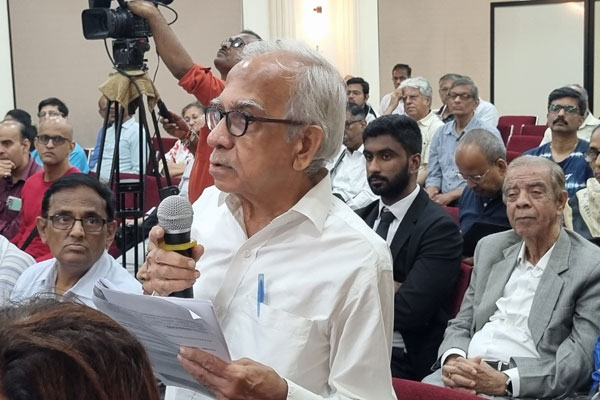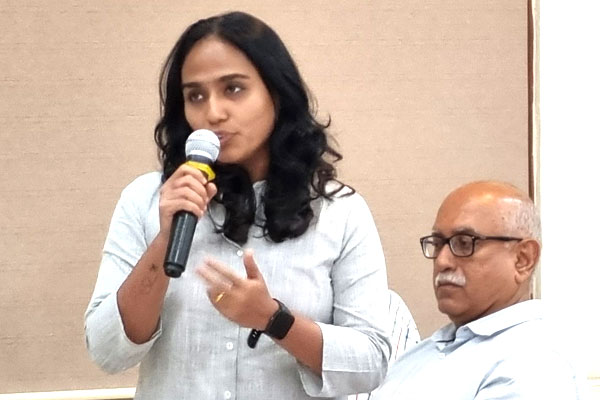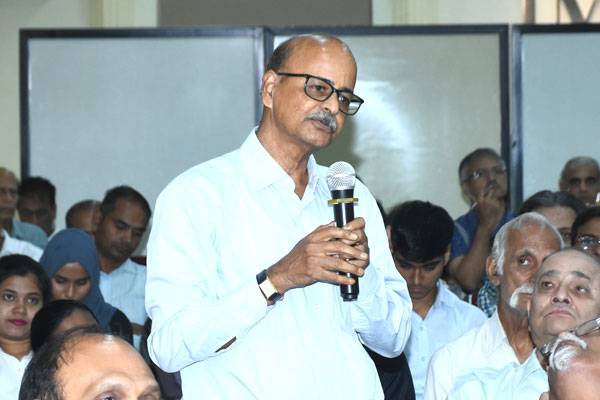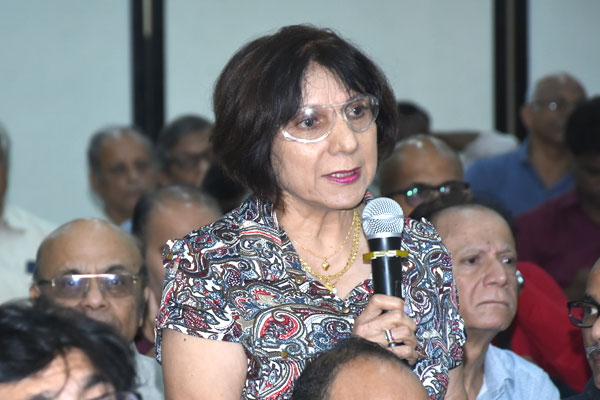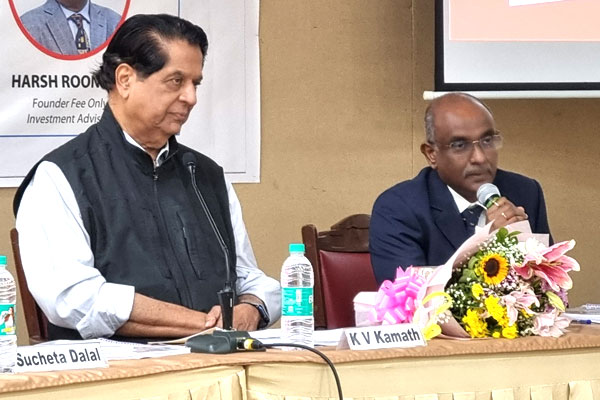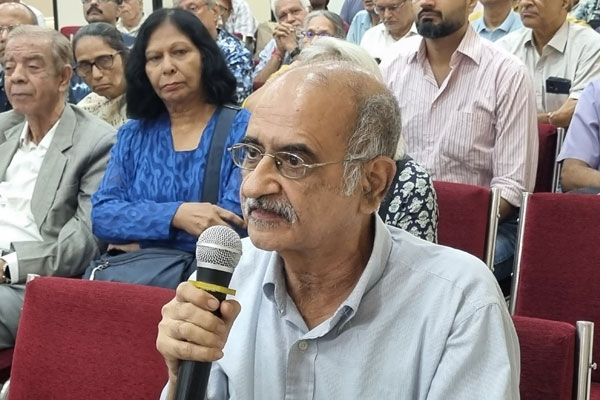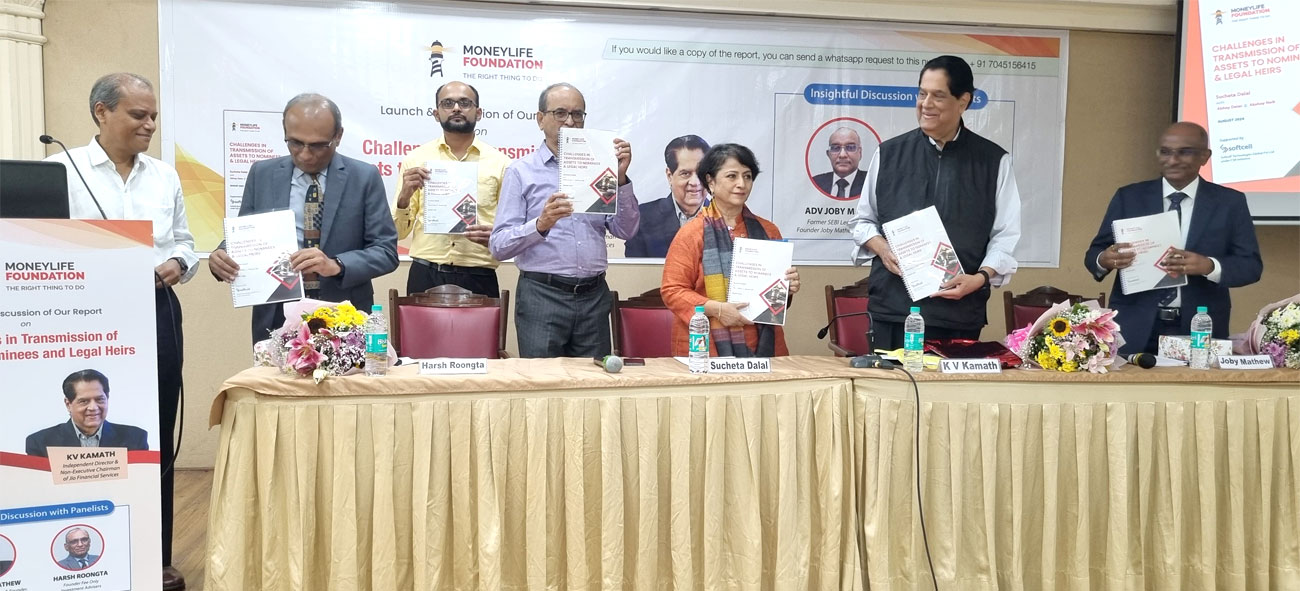
Asset transmission challenges will only increase as the country becomes prosperous and, hence, there is an urgency to address the issues, said KV Kamath, renowned banker and non-executive chairman of Jio Financial Services. Mr Kamath released Moneylife Foundation's report on "Challenges in Transmission of Assets to Nominees and Legal Heirs" and spoke at a discussion event about reclaiming unclaimed funds, which are now a staggering Rs2 lakh crore or more. The report release was followed by a panel discussion moderated by Sucheta Dalal, founder-trustee of Moneylife Foundation. The panel comprised:, Harsh Roongta, founder of Fee Only Investment Advisers and Advocate Joby Mathews, former legal officer of SEBI and founder of Joby Mathews & Associates.
Mr Kamath, former chief of ICICI Bank, says, "I have been through the challenges in claiming assets myself. I can only imagine what the challenge it must be for a layman, who does not have the knowledge. However, with technology, issues in asset transmission that most of what we are talking about like frauds, or mistrust can be resolved. The process has to be automatic and simple. We need to ensure that the regulator is on the same page with our concerns."
In a foreword to the report, Mr Kamath has said, "All the concerned regulators have recognised the problem and have started taking concerted action to see how the process can be made easier. This is a good start and given the current advances in technology, a viable and robust solution could soon be put in place. However, because of the large amount that is stranded, there is urgency in streamlining the process as soon as possible," he added.
The report by Moneylife Foundation has revealed that over Rs2 lakh crore of unclaimed assets remain in limbo with the government and financial regulators and are growing at 15%-20% annually.
The report highlights the urgent need for systemic reforms to address the complex and often inaccessible processes involved in reclaiming these assets.
Generally, unclaimed assets accrue from dormant bank accounts, maturity proceeds of policies idling in insurance companies, life savings of individuals locked up in bank accounts, equity and bond investments, provident fund accounts, mutual fund investments, post-office savings as well as dividend, interest and other corporate benefits that have not been cashed for years.
They remain in pools such as the Reserve Bank of India's (RBI's) depositor education and awareness fund (DEAF), which had Rs78,213 crore at the end of March 2024. The ministry of corporate affairs told Lok Sabha about Rs5,714 crore in corporate benefits, which did not include the value of shares. As of 1 August 2024, IEPF's shareholding in these companies is valued at a whopping Rs82,199, reveals information shared by Fee Only Investment Advisers LLP, founded by former banker Harsh Roongta.
Unclaimed insurance, post-office savings, and provident fund money are transferred to the senior citizens' welfare fund (SCWF). The insurance regulator has admitted to transferring nearly Rs10,000 crore (after remaining unclaimed for 10 years). However, various sources quoted in the report have estimated unclaimed insurance funds to be Rs22,000 crore to Rs27,000 crore. Similarly, bankbazar.com has estimated unclaimed funds with the employee provident fund organisation (EPFO) to be Rs27,000 crore. In general, precise data on the extent of unclaimed funds is severely lacking.
Among the challenges that nominees and legal heirs face when claiming assets of the deceased are inconsistent processes for nomination, lack of standard operating procedures, poor searchability of data, lack of knowledge and harassment by officials, which lead to unreasonable delays in settlement of claims.
Key Recommendations of the Report:
Moneylife Foundation recommends a tech-based solution as a unified platform or searchable database for claimants to access information across various financial assets. Expanding on Securities and Exchange Board of India's (SEBI's) idea for centralised reporting of death, the report also recommends a centralised repository for death registration. Such an online repository would maintain and verify information related to births and deaths. This will be a big step in ensuring speed and eliminating the need for heirs (once authenticated) to submit multiple death certificates to different agencies. It will also allow each agency to confirm and cross-verify information for the transmission of assets.
Other recommendations include establishing detailed standardised operating procedures across all financial sectors and a list of acceptable documents to guide claimants, whether as nominees or legal heirs.
Developed countries have a centralised process to 'reunite unclaimed property with the rightful owner'. It is the opposite in India, where every hurdle is placed in the way of claims.
Proposed Solution for India
- Centralised Database: A unified platform for claimants to access information across all financial assets.
- Central Repository of Death Registration.
- Clear SOPs: Establishing detailed, standardised SOPs across financial sectors to guide claimants including list of acceptable documents.
- Legal Reforms: Simplifying succession & inheritance processes, reconsider probate, which is a British Era relic.
The report has also highlighted serious gaps in the legal processes for incapacitated adults who may have the funds but are unable to make medical or financial decisions for their own health and long-term care.
The report release was followed by a panel discussion moderated by Ms Dalal.
Responding to a question about whether nominations with safeguards can help ease the asset transmission process, Harsh Roongta, founder of Fee Only Investment Advisers, says, “People have an aversion to writing Wills…but asset-wise nomination is much easier to digest for Indians. This is why in my opinion nominations should supersede Wills.”
“Can nomination replace a Will? Yes perhaps in financial assets…but it is much more complicated for immovable assets,” opines Advocate Joby Mathew, former Legal Officer of SEBI and founder of Joby Mathew & Associates.
“By making a nomination you are basically telling the world that this is the person whom your assets should pass on to. That is essentially what a Will does, with the addition of a probate in presidency towns,” he added.
Ms Dalal asked the panellists about all the players adopting the SEBI model, including online dispute resolution and the death registry. Adv Mathews informed that SEBI has penalty structure for intermediaries who are regulated. “This process is actually a good thing that helps to deter processing delays.”
Mr Roongta also feels that the centralised mechanism for reporting death announced by SEBI is perhaps the best system put in place for death claims. “The process makes it so much simpler for nominees or heirs, with required documents and timeframe being prescribed by the regulator,” he added.
Ms Dalal also touched upon the big elephant in the room, fraud. She says the government uses this big elephant in the room as an excuse for tortuous processes.
Talking about the way forward to ease pains of asset transmission, Mr Kamath says, "Unclaimed funds are so large, but this should not be the case in todays world. We have tech based solutions for everything and almost everything is interconnected to each other. We should not ideally have this problem, but we now need a solution for it."
About the Report
Moneylife Foundation's report, "Challenges in Transmission of Assets to Nominees and Legal Heirs," is a detailed exploration of the staggering issue of unclaimed assets in India, which amount to over Rs2 lakh crore across various sectors. This report is the culmination of extensive research and analysis aimed at understanding the reasons behind the accumulation of these assets and the challenges faced by rightful owners or heirs in reclaiming them.
The report is put together by Sucheta Dalal, founder-trustee of Moneylife Foundation, with Abhay Datar, former banker, consumer activist and counsellor at Moneylife Foundation and Akshay Naik, project director at Moneylife Foundation.
It has attempted to put together basic facts on issues related to nomination, transmission, unclaimed funds and the processes involved. An effort has also been made to suggest possible solutions to reduce friction, harmonise action between various arms of government and regulatory bodies to make things easier for ordinary citizens.
The report aims to serve as a catalyst for change, prompting immediate action from regulators, policymakers and financial institutions. Moneylife Foundation plans to continue its advocacy on this issue, working with stakeholders to implement the report's recommendations and track progress in reducing the volume of unclaimed assets.
The report has been possible due to the support of Softcell Technologies Global Pvt Ltd, under a corporate social responsibility (CSR) initiative.
A copy of the report has been made available on Moneylife Foundation's website here: https://www.mlfoundation.in/memorandum/challenges-in-transmission-of-assets-to-nominees-and-legal-heirs/389.html


